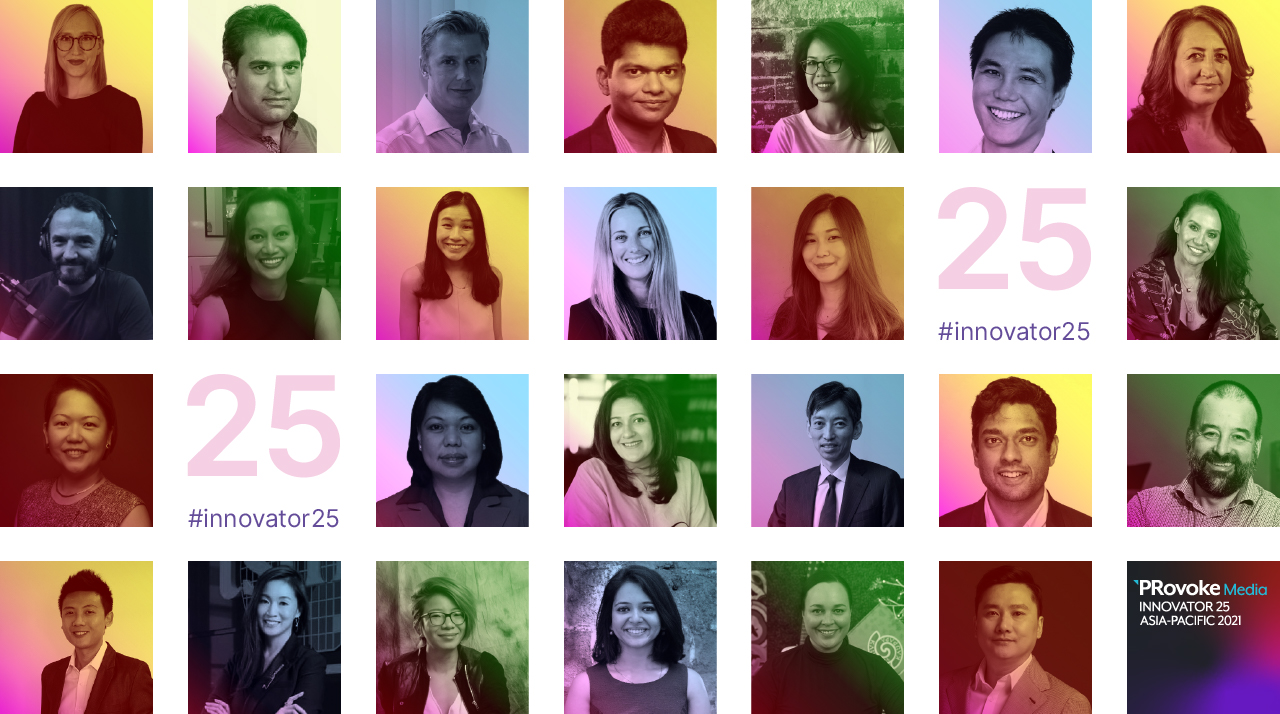
Binesh Kutty
Senior Director, Live! Newsroom
Genesis BCW
New Delhi
"There is a huge possibility that you will be ridiculed. Don't let that deter you"
With a background in journalism and proclivity for technology, Binesh Kutty continues to expand on the capabilities and success of Live! Newsroom, the media monitoring and analysis hub he created and runs for Genesis BCW. Using human and data intelligence, newsroom technology and automation, the newsroom provides the valuable insights that enable Genesis BCW’s teams to deliver campaigns with higher outcomes. The newsroom is as well-equipped to analyze volumes of news generated during a crisis as it is to spot actionable trends, driving the firm's award-winning work for a range of clients, including the
SABRE South Asia Best in Show campaign for Gillette.
How do you define innovation?I will steal the definition from Deepshikha Dharmaraj, CEO, Genesis BCW: "Innovation is creativity with a purpose." On the one hand, it is creativity — it has to be an insight-based idea that disrupts the status quo. On the other hand, it needs to have a purpose. It’s not enough for innovation to be disruptive. It also needs to solve a problem.
What is the most innovative comms/marketing initiative you've seen in the last 12 months?
There have been several, but the ones that have really hit the mark are those that have really aligned their purpose with their creativity. Take Gillette, for example, which reached out to support small barbershops with the Barber Suraksha (Protection) Programme with information, hygiene kits and more. Or Diageo, which, literally, raised the bar, supporting the hospitality industry reeling under the pandemic restrictions. At the global level, one of the most powerful ones is Trygg-Hansa’s Beach Mode campaign, where they created an app to block parents’ access to distractions like social media when they were at the beach with their kids.
In your opinion, what brands and/or agencies are most innovative around PR and marketing?
While there are a lot of big brands, like Gillette (P&G in general, including Vicks), the cola rivals, who set the benchmark high for innovation, I am particularly impressed by innovation when it comes from small players. For instance, during the devastating second wave of the pandemic in India, our partner and client Locobuzz, a data analytics and customer experience management start-up, created a web platform for aggregating and presenting verified information around critical resources like oxygen cylinders, refilling and concentrators, hospital beds, plasma, medicines, etc. It was about applying their data and analytics expertise for something so essential just by thinking innovatively.
Describe a moment in your career that you would consider 'innovative.'
Way back in 2005-06, I played my part in launching India’s first ‘interactive’ print magazine. We basically inserted a SMS short code (which was a novel tech at that time) on each page of the magazine. The users could text us their queries, doubts, feedback – which we would receive on our computer, and we used to respond within minutes, if not hours. I think that was quite innovative for the time before smartphones.
Who do you admire for his/her approach to innovation?Prema Sagar, Founding Chairperson, BCW India Group. Her approach is quite simple. Think of an idea, and make it fit on an A4 size paper. If it fits, one can make it work. Where do you find ideas? Listen. Read. Watch. Observe. Ideas are all around you. Whenever possible, engage with little children – they have questions and ideas that are untethered, unexplored, and unchartered. Once you have an idea, keep at it – naysayers, failures and disappointments are a part of the journey.
How do you get out of a creativity rut?
Creative blocks were a regular affair in my earlier role as a journalist. What worked, and still works, for me is to first acknowledge that I’m stuck in a rut, and then not fight it. Creativity cannot be forced. So take a break for a while – listen to some music, take a nap, go for a drive – allow your mind to ‘breathe’.
What advice would you give to the PR industry around embracing innovation?
I have a souvenir from my visit to J. Paul Getty Museum. It has a quote from the man himself that goes, “In times of rapid change, experience can be your worst enemy.” So when someone says, “Believe me, we have tried this before and failed,”… don’t believe him or her. Ideas have their time, maybe then was not the time, and now is. Innovation also depends on execution – maybe your way is different than before.
Also, innovation brings about change. And most people are not comfortable with change. Don’t bulldoze it into them. Ease them into it. Know that adoption and acceptance is going to be an uphill task. There is a huge possibility that you will be ridiculed. Don't let that deter you.
Lastly, I would go back to what I said before—when you are thinking innovation, think purpose. I am a data and analytics guy so, of course, that is necessary to tap into when you’re creating a solution as well. The public relations industry has seen an acceleration in this but I would still ask the industry to make data analytics and measurement their best friend.
What would you be doing if you weren't doing your current job?
I’m fortunate enough to say that my entire career I have been doing something that has not been done before. For me, change is a constant, and if that change is a way of life in whatever I am doing – I am at peace. And I have been fortunate to have bosses and mentors who have encouraged and supported me with this all along.
Having said that, technology has fascinated me from my childhood till date. Even if I did not have my current job, I am 100% sure that I would have been doing something in data science. Right now and the near future is the time of data.
Which book/movie/TV show/podcast/playlist/other cultural source has helped you get through this year or provided inspiration?I restarted and finished reading the Foundation Series by Isaac Asimov. It’s a series of seven science-fiction books written between 1951-1993. These books are a gold mine for conceptualisation. Also, I am a big fan of science-fiction movies, comic books, and comic book movies. So all the Marvel and DC movies and series (yes, I like both!) helped me get through this year, as well as gave me ideas to mull over. However, my daily dose of inspiration comes from Podcasts. I am a sucker for almost all BBC, NPR, and Vox podcasts and podcasts in general – as it’s the only medium of consumption that allows you to multitask. Some of my go-to podcasts are: Vox conversations, Today Explained, Land of the Giants, The Weeds from the Vox network. The Real Story, More of Less: Behind the Statistics, and The Documentary from the BBC network. Throughline and Consider This from NPR. Hidden Brain by Shankar Vedantam. Pivot by Kara Swisher and Prof. Scott Galloway, and Philosophize This from Stephen West – yes, philosophy can inspire data science, work, and life in general.
What's your favourite time of day and why?
My favourite time of the day is “me-time”. And I am fortunate enough to be a part of an organisation that is driven by the culture of delivering high-quality service ahead of or on time. This means that “me-time” can be any time of the day (refer to the answer above on creative rut). Why is it my favourite time? This is the timeslot where I recharge by doing something spontaneous and enjoyable.


 Podcasts
Podcasts Videos
Videos Profiles & Interviews
Profiles & Interviews Crisis Review
Crisis Review Coronavirus
Coronavirus Trend Forecasts
Trend Forecasts Social & Digital
Social & Digital Technology
Technology Consumer
Consumer Employee Engagement
Employee Engagement Sports Marketing
Sports Marketing  Global PR Agency Rankings
Global PR Agency Rankings Agencies of the Year
Agencies of the Year Innovator 25
Innovator 25 Creativity in PR
Creativity in PR Asia-Pacific Communication Index
Asia-Pacific Communication Index SABRE Awards
SABRE Awards PRovokeSummit Global
PRovokeSummit Global PRovoke Media Regional Series
PRovoke Media Regional Series Agencies of the Year
Agencies of the Year Roundtables
Roundtables Agency Playbook
Agency Playbook.jpg) All Jobs
All Jobs






